Decent Work and Economic Growth


Home » 8 Decent Work and Economic Growth » SDG 8 – Shifting from “Profits Only” Mode to an Economic, Social and Environmental Impact Model -In collaboration with Dr. Eitan Eliram Lead Innovation Strategist June 2024
SDG 8 – Shifting from “Profits Only” Mode to an Economic, Social and Environmental Impact Model -In collaboration with Dr. Eitan Eliram Lead Innovation Strategist June 2024
In 1961 former US President John F. Kennedy coined the guiding principle of public activity to this day “Don’t ask what your country can do for you; but rather ask what you can do for your country”.
Today, more and more business companies are asking themselves not only what value they produce for their shareholders, but what is the value created for all their stakeholders: the national economy, customers, employees and suppliers etc.
In a market economy, the main goal of a business company is to bring value to its shareholders. Today, it is increasingly clear that the carrying on of a company’s value can not only be based on narrow considerations of maximizing short – term profits but must take into account all of the company’s effects on the public.
If in the past there was a convention that there is a contradiction between maximizing company profits and creating benefit for the public, then in the modern economy the requirements of regulators, as well as consumer, employee and supplier preferences, create an increasing balance between universal value and shareholder value.
Business companies regularly measure and publish their annual profit and loss balance sheet. The profit and loss statement are intended to quantify and measure the return that the company picks up for its shareholders. But how do you measure the return that the company picks up for the rest of its stakeholders?
integrating socio-environmental considerations into business processes has undergone an accelerated development process in recent decades – beginning as a philanthropic act based on the principle of Giving Back, contributing to the community to advance social goals – advancing the measurement and reporting of corporate responsibility in existing public reports. Then evolved into declared commitments of business companies – corporations and startups alike – to create a positive and measurable impact on the economic, social and environmental levels.
key preforming indicators for impact are an important tool both among decision-makers and the government, and among businesses and corporations, which seek to examine their impact on the general public.
n Israel, this year Bank Hapoalim published the first impact report of an Israeli business company in the financial sector. The report, prepared by BDO economists, estimated the bank’s total direct and indirect economic effects at NIS 19.5 billion, which is about 1.5% of Israel’s domestic product, in addition to measuring its contribution to reducing inequality and periphery-center gaps, promoting small businesses through dedicated credit and project financing. Promoting sustainable environmental solutions. In doing so, the Bank has joined previous studies conducted in recent years in Israel by companies such as ICL, Intel and Teva, as is customary among leading global companies.
Worldwide, Airbnb recently published the findings of its impact study, in which it estimated its contribution to the global economy at about $ 100 billion a year, of which about $ 34 billion in the US alone. The average, along with its contribution to reducing social disparities and ensuring the economic independence of the hosts as part of its activities.
Apple also realized that the company’s impact, estimated at more than $ 950 billion, is far beyond its profit line: a study released this year estimated that the company’s acquisition chain created about 2.4 million jobs across the United States, and that by By 2023, its direct contribution to the local economy is expected to be about $ 350 billion, joining the giant corporations Microsoft, Bank of America, Google Nestle and Coca-Cola, which measure and report on their economic, social and environmental impact.
Impact measurement is relevant not only for business companies, but also for the government and the third sector, which seek to examine the effectiveness of their activities. For example, the Federal Aviation Administration in the United States estimated the total contribution of the country’s commercial aviation industry at about $ 850 billion, equivalent to about 5% of the country’s GDP, and estimated that the industry supports the creation of about 10 million jobs, which is about 7% of all jobs in the United States.
In the Israeli arena, the national food loss report of Leket Israel and BDO, published for the fourth year in a row, indicates the economic, social and environmental impact of saving food. The findings of the report show that the value of food loss in Israel this year was about NIS 19.7 billion, NIS 656 per month per household along the entire loss chain.
The report presents the impact of food rescue activities and their transfer to the needy, and shows that every shekel invested in saving food creates economic, social and environmental value estimated at about seven shekels. This value embodies the contribution of saving food to increasing productivity and reducing product loss through shaded food, reducing social disparities and food insecurity through distributing food to the needy, and reducing negative environmental impacts through reducing waste and reducing greenhouse gas emissions.
Economic quantification of social and environmental impact, which is not necessarily fundamentally economic, offers a solution to a major market failure – the lack of a standard for quantifying and comparing social and environmental performance of companies. The multiplicity of models for evaluating companies ‘performance, both on the part of investor analysis and of voluntary reporting mechanisms, sins twice: first time because the companies’ performance and ratings are not comparable; And a second time because of the amount of resources companies invest in responding to those tens of thousands of metrics – which are updated and changed every year – and which could otherwise be invested in developing beneficial impact practices and reducing harmful effects.
Quantification in economic terms of the same performance – while weighting the circles of influence created as a result – puts a uniform price tag for the activities of companies and organizations and thus allows comparison between alternatives, measurement of return on investment and estimation of overall benefits from their operating activities. Measuring impact in economic terms also makes it possible to harness and recruit partners – government, philanthropy, investors or the public – for social and environmental purposes, while diverting the discussion from the question of how to act in a value-based way – to prove the economic viability inherent in their realization.
Impact studies provide a broad perspective on the organization’s performance for all of the company’s stakeholders – investors and shareholders are given an indication of the extent of the economic, social and environmental impact of their investments; Government officials are given the tools to decide on relevant policies, grants, and incentives; And business companies are allowed to establish their social license to operate among customers, the media and the public.
This article was contributed by By Chen Herzog and Achinoam Siegel, from the sustainability and corporate responsibility department at BDO-Israel. Contributed articles reflect the opinion of the authors only.
Related articles


SDG 8- How’s the “Impact Nation” Transition Going? – Part 2
Decent Work and Economic Growth Read Part 1 In Part 1 of this series we focused primarily on developments in the impact investment world. Of


SDG 8-Harnessing the Power of the Crowd – for Lending
Decent Work and Economic Growth Harnessing the Power of the Crowd – for Lending Peer-to-peer lending, or crowdlending, has taken off in Israel. This relatively


SDG 8- SID-Israel facilitating 130 organizations towards a positive change-By Dr. Eitan Eliram Lead Innovation Strategist Jan 2024
Decent Work and Economic Growth Economic development is good for a community, but not when it ignores the needs of the people. Communities consist of



















